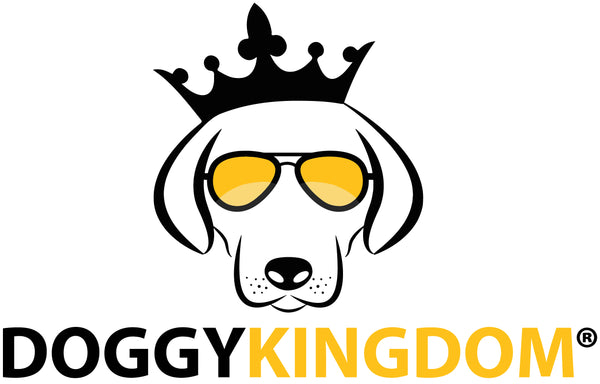Keeping the Pearly Whites Shining: Caring for Your Dog's Teeth
Share
Hello fellow pet parents! We all know how important oral hygiene is for ourselves, but what about our furry friends? Just like humans, dogs need proper dental care to maintain healthy teeth and gums. In this blog post, we'll dive into the world of doggy dental care, exploring why it's crucial, how to keep those canines shining, and some tips to make the process easier. So, let's wag our tails and get started!
Why Dental Care Matters for Dogs
You might be wondering, "Why should I worry about my dog's teeth?" Well, dental issues in dogs are more common than you might think. Without proper care, plaque and tartar can build up, leading to bad breath, gum disease, tooth decay, and even potential systemic health problems. Just like humans, poor oral health can affect a dog's overall well-being, so prevention and maintenance are key!
Brushing Those Canine Chompers
Brushing your dog's teeth may sound like a daunting task, but with patience and practice, it can become a breeze.
Here's a step-by-step guide to help you get started:
- Choose the right tools: Opt for a dog-specific toothbrush or a finger brush that fits comfortably on your finger. Pair it with a dog-friendly toothpaste, avoiding human toothpaste as it can be toxic for dogs.
- Introduce gradually: Start by gently touching your dog's muzzle and lips, gradually working your way towards touching their teeth and gums. Make it a positive experience by praising and rewarding them with treats.
- Get brushing: Apply a pea-sized amount of toothpaste onto the brush and begin brushing in a circular motion. Focus on the outer surfaces of the teeth, as that's where plaque tends to accumulate. Aim for a few seconds initially, gradually increasing the time as your dog becomes more comfortable.
- Be patient: Remember, Rome wasn't built in a day! If your dog resists initially, don't give up. Take it slow, and with time, they'll get used to the routine.
Dental Chews and Toys
In addition to brushing, dental chews and toys can be a fantastic way to keep your dog's teeth clean and healthy. Chewing helps remove plaque, stimulate saliva production, and promote gum health.
Look for dental chews specifically designed to aid in tartar control and gum massage. Be sure to choose appropriate sizes and textures based on your dog's breed and preferences.
Regular Dental Check-ups
Just like humans, dogs benefit from regular dental check-ups. Schedule routine visits to your veterinarian, who can assess your dog's oral health, perform a thorough dental examination, and provide professional cleaning if necessary.
Professional cleanings often involve scaling, polishing, and even tooth extractions if needed. Remember, prevention is always better than cure!
Maintaining Dental Hygiene in Other Ways
While brushing, dental chews, and vet visits are essential, a well-rounded dental care routine for your furry friend goes beyond these methods. Here are a few additional tips to help keep your dog's teeth in tip-top shape:
- Balanced diet: Feed your dog a high-quality, balanced diet that promotes dental health. Look for specially formulated dental diets or consult with your veterinarian for recommendations.
- Water additives: Consider using water additives designed to promote oral hygiene. These can help reduce plaque and freshen your dog's breath. Regular inspections:
- Regularly inspect your dog's mouth for any signs of dental issues such as redness, swelling, bleeding, loose teeth, or unusual growths. If you notice anything concerning, consult your vet promptly.
Caring for your dog's teeth doesn't have to be difficult. In fact, it's a great way to bond with your furry friend!




2 comments
My miniature schnauzer doesn’t seem to like most things to chose on . Can you make a suggestion? Thanks you!
Unless I missed it, the question wasn’t answered -— how often should brush your dog’s teeth?